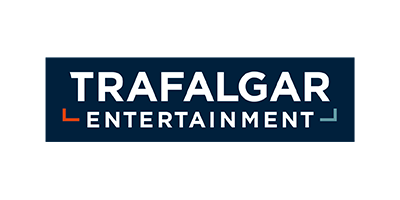Interested in an apprenticeship? Well you’ve come to the right place. Here at Access Industry, we offer apprenticeships in a range of subjects within Music & Events, Digital and Marketing.
Apprenticeships offer a different kind of educational experience to traditional BTECs and A Levels, allowing you to ‘learn while you earn’. When you sign up to an apprenticeship, you are employed by an organisation and learn both ‘on the job’ within the workplace, and via our online learning platform with support from industry specialists – and you earn a salary as you would with regular employment.
Studying with us comes with a number of benefits including courses taught by industry experts with years of direct, hands-on experience in their field, full use of Access Creative College’s incredible facilities and access to a national network of like-minded creatives so you can build professional relationships throughout your time with us.
Got questions? Read our FAQ below.
FAQs
An apprenticeship is a paid job which allows you to develop the skills, technical knowledge and experience to help you develop your career.
You will develop your technical knowledge through formal ‘off the job’ training and gain practical skills and experience whilst working. Apprenticeships have been designed by employers and include the knowledge, skills, behaviours and formal qualifications needed for each specific job role and sector.
To be eligible, you must be aged 16 or over, living in England and not taking part in full-time education. If you are already employed, you can start an apprenticeship in your current job to help you progress to a higher level position. If you are not employed, you can leave your details here and a member of our Apprenticeship team will be in touch for a chat about your options.
Apprenticeships range from Level 2 to Level 7. The levels and their equivalent qualifications are listed below:
Level 2 = 4 GCSEs
Level 3 = 3 A Levels
Level 4 & 5 = Foundation degree and HNC/D
Level 6 = Bachelor’s Degree
Level 7 = Master’s Degree
Access Industry currently offers apprenticeships up to Level 4, but we continually update available apprenticeships to meet learner needs and industry trends.
The role of an Industry Practitioner (IP) is to create an Individual Training Plan (ITP) to suit your specific training needs. They will agree and plan training sessions and prepare you (and your employer) for your End Point Assessment. They will guide, support and encourage you throughout your apprenticeship training programme.
The ‘Apprenticeship Standard’ and assessment plan developed by employers will set out the knowledge, skills and behaviours required, as well as an outline of the methods that will be used for the End Point Assessment. Examples of different assessment methods are shown below.
Depending on the standard, the assessment methods will vary. Here are examples of some of the types of assessment that may be used at your End point assessment;
- Workplace observation
- Professional discussion
- Project proposals
- Exams/Tests
- Portfolio assessment
Whilst you are on your apprenticeship, your IP will use all of the above as well as your submitted tasks and journals to assess your progress and provide you with feedback and a ‘working at’ grade.
At the end of your apprenticeship, you will go through a ‘gateway’ process where your employer and IP confirm that you are ready for the final assessment of your knowledge and practical capabilities. The End Point Assessment will test that you are competent to work effectively and productively in your chosen occupation.
The End Point Assessment is graded. The Independent End Point Assessment Organisations (EPAO) and assessor must be independent of, and separate from, the training provided by the College and your employer.
Yes, but don’t worry. All apprenticeships include Maths and English Functional Skills which provide further development in these work related skills. You’ll have an initial assessment of your English and Maths skills during your induction, and you will have to complete online external tests in both subjects.
If you have already achieved qualifications in Maths and English to a high enough standard, you will be exempt from completing Functional Skills qualifications as part of your apprenticeship. If this is the case, your IP will continue to work with you to develop your use of Maths and English in the workplace, so that you can use these skills at a higher level.










